Ramadhan Reflections – Mufti Hussain Kamani – Day 1
Posted in UncategorizedJuly 11, 2013No comments
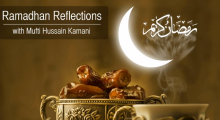
Posted in UncategorizedJuly 11, 2013No comments
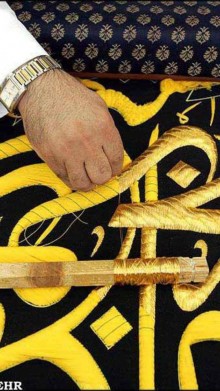
The Kiswah is the famous black cloth that covers the Kaaba. The holy Kaaba is covered with new Kiswah every year on the 10th Dhul Hijjah, which coincides with Hajj.
The Kiswah is woven from black silk, with various verses of the Quran embroidered into it in gold and silver thread. Today, it costs approximately 17 million Saudi Riyals to make. The cover is 658 square meters long and is made of 670 kilograms of pure silk. For embroidery, 15 kilos of gold thread are used. It consists of 47 pieces of cloth and each piece is 14 meters long and 101 centimeters wide. The Kiswah is wrapped around the Kaaba and fixed to the ground with copper rings.
SubhanAllah.. How truly beautiful and cooling to the eye.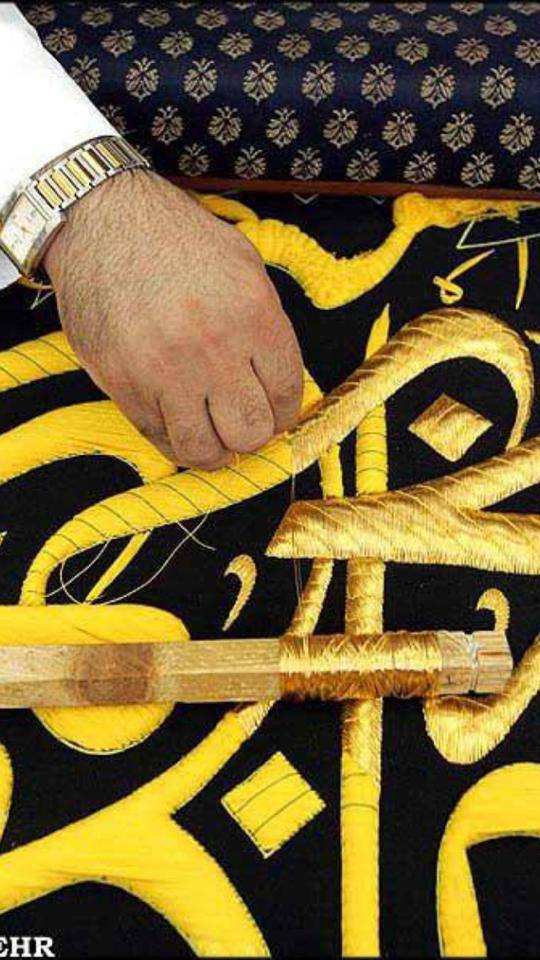
Posted in UncategorizedJuly 9, 2013No comments
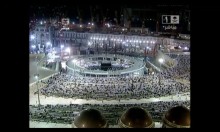
LISTEN LIVE: TARAWEEH 1434 FROM MASJID AL HARAM
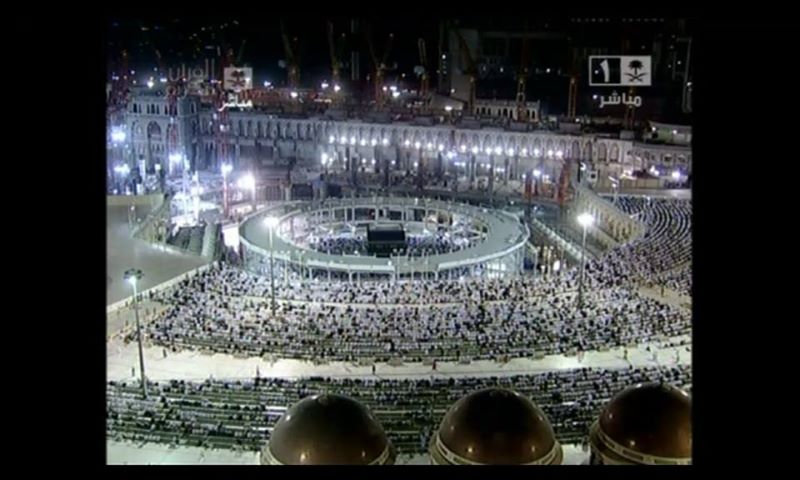
1st 10 Rakaats: Sheikh Abdullah Awaad Al Juhany
2nd 10 Rakaats: Sheikh Abdul Rahman As Sudais
http://www.ciibroadcasting.com/live-audio-streaming-cii/
Posted in UncategorizedJuly 9, 2013No comments
Posted in UncategorizedJuly 9, 2013No comments
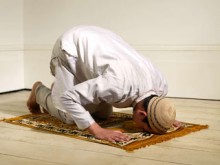
The Transportation Security Administration has issued a bulletin to help air travelers understand Muslim practices they might observe, especially as the Islamic holy month of Ramadan begins on Tuesday.
Ramadan is a holy month for Muslims, who observe the event with a variety of traditions.
The bulletin says Muslims abstain from food, water, smoking or vices of any kind during Ramadan.
It also says passengers may be seen reading, listening to or orally reciting the Holy Qur’an at airports and on airplanes.
Dawud Walid directs the Michigan Chapter of the Council on American-Islamic Relations.
Posted in UncategorizedJuly 8, 2013No comments
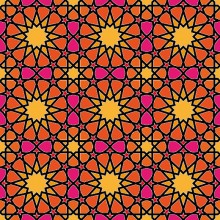
 For many of Kingston’s Muslims, today’s lunch will be their last for the next 30 days.
For many of Kingston’s Muslims, today’s lunch will be their last for the next 30 days.
Ramadan, the Islamic month of fasting, begins tonight. For healthy Muslim adults, that means absolutely no food, drink or sex between dawn and sunset. The pre-dawn meal (called suhoor) will be taken before 4 a.m. and the fast-breaking meal (iftar) will be at sunset, just before 9 p.m. Since Ramadan is also the month of the Qur’an, special nightly prayers will be offered during which a portion of the Qur’an will be recited from memory. This way, recitation of the entire book will be completed by the end of the month.
With Ramadan occurring in the summer months nowadays, staying healthy and hydrated is a top concern for many Canadian Muslims. Those who are unable to fast – due to illness or infirmity, for example – are exempt and can make up fasts later when the days are shorter. If that’s not possible, they can feed the needy as expiation.
But even many Muslims who are able to fast are increasingly thinking about feeding others during the holy month. Ramadan is not just about fasting. It’s also the month of charity, patience and mercy.
Although helping the less fortunate has always been regarded as virtuous, many Muslim communities in Canada have been so far focused on building institutions such as mosques, centres and schools. But now, an increasing number of initiatives are being launched in cities across the country to feed the needy, especially in Ramadan.
There are little-known programs that have been running for years. Kingston’s Muslim community has been offering ongoing support to the Partners in Mission Food Bank for years with financial contributions. During the annual festival of sacrifice (known as Eid al-Adha), which coincides with the Hajj pilgrimage to Makkah, animals are sacrificed to commemorate the willingness of Prophet Abraham to sacrifice his son Ishmael at God’s command. The meat from these animals is often shared between family, friends and the needy. A portion from the latter is sent to the local food bank annually.
At the Islamic Foundation of Toronto, 700 hot meals are served to the needy every Saturday of the year. The majority of the clients are not Muslims. The Muslim Welfare Centre distributes 300 lunch bags every Saturday to the needy and homeless in downtown Toronto, while the Syeda Khadija Centre delivers 250 hot meals every Sunday to youth and women’s shelters west of Toronto. There are numerous other examples.
Over the past few years, there has been an increase in the number of Ramadan campaigns to feed the hungry. A large campaign in Montreal’s Muslim community, now in its third year, is bringing together mosques, student groups, businesses and individuals to help cook and serve 4,000 meals during Ramadan at the Old Brewery Mission.
In London, Ont., the “Fast a Day, Drive Hunger Away” campaign is in its second year. It encourages non-Muslim Canadians to join the Muslim community for one day of fasting. The money saved by not eating that day is donated to the London Food Bank.
Ziyaad Mia, a Toronto lawyer who is running his own Ramadan campaign against hunger for the second year in a row, says it’s a sense of responsibility that motivated him to start Give 30, which asks Muslims to donate $1 a day in Ramadan to the Daily Bread Food Bank in Toronto and the Calgary Inter-Faith Food Bank. Last year, the campaign raised $40,000.
“This project is important to me because we all have a responsibility, not only as citizens of Canada, but as human beings, to render service to others,” he said. “If we want to transform our neighbourhood, city, country and the world, we need to first transform ourselves, and this project has given me small chance to challenge myself to put my money where my mouth is – to stop complaining about ‘how the world is’ and work on ‘how the world ought to be.’”
As an imam, I often remind my fellow Muslims that one of the purposes of fasting is to become more patient and to exercise self-control, which are first tested at fast-breaking. After many hours of fasting, the desire to indulge can be difficult to resist, and it’s easy to become obsessed about food.
It is wonderful to see that many Muslims are busying themselves with feeding others instead of themselves. This, along with caring for our neighbours (regardless of their faith), is an important yet often overlooked part of Islamic teachings. Ramadan is an excellent and very appropriate time to revive these teachings.
Sikander Hashmi, a member of the Whig-Standard’s Community Editorial Board, is a freelance journalist originally from Montreal. He is currently serving as an imam at the Islamic Centre of Kingston. He can be reached through his website at www.sikander.ca or through Twitter @kingstonimam
Posted in UncategorizedJuly 8, 2013No comments

One day a poor man brought a bunch of grapes to the holy prophet Muhammad (peace be upon Him) as a gift.
The holy prophet (pbuh) ate one, two, three and then the whole bunch of grapes by himself.
He did not offer grapes to anyone present. The poor man who brought those grapes was very pleased and left. One of the companions asked, “O prophet of Allah (peace be upon Him) ! How come you ate all the grapes by yourself and did not offer to any one of us present? (as it was the habit of our prophet to share food and pass gifts)
The holy Prophet (peace be upon Him) smiled and said, “I ate all the grapes by myself because the grapes were sour. If I would have offered you, you might have made funny faces and that would have hurt the feelings of that poor man. I thought to myself that it’s better that I eat all of them cheerfully and please the poor man. I did not want to hurt the feelings of that poor man.”
Such were the manners of this most noble prophet of Allah.
Posted in UncategorizedJuly 8, 2013No comments
Posted in UncategorizedJuly 5, 2013No comments
Posted in Daily IslamJuly 3, 2013No comments
“But you do not exercise you will, except that Allah wills it; for Allah is full of Knowledge and Wisdom.” [Sûrah al-Insân: 30]
Posted in UncategorizedJuly 3, 2013No comments
1- Voluntary Fasts
What better way of preparing ourselves to fast for 30 consecutive days in Ramadan than to fast the voluntary fasts.
Fasting Monday and Thursday:
Another is to fast the white days (13, 14 and 15th of each Islamic month).
2- Reciting Quraan
For many of us the Quraan has gathered a lot of dust since the last time we picked it up.
As Ramadan is fast approaching we must blow off the dust and start to build a close relationship with the Quraan for it will intercede with us on the day of judgement.
So what better time for us to get into the habit of reciting the Quraan than to begin to do so right now. We should recite the Quraan with its meanings and try to understand and implement it into our daily lives.
We should set ourselves realistic targets for how much we should begin to recite each day for e.g. we will recite 1 or 2 pages a day, half a juz (chapter), or 1 juz etc. We should recite however much we can manage and then build up gradually.
3- Praying Voluntary Salaah
We should begin now by praying all of the daily Sunnah and Nafil prayers so by the time Ramadan comes we will already be in the habit of praying all of our Sunnah and Nafils and so we can increase our voluntary prayers even more so during Ramadan.
4- Making Dua
Many of us do not spend as much time as we should do in Dua. Even if we do we rush our dua and our hearts and minds are not present whilst supplicating to Allah.
What better time than now for us to get into the habit of making more intense and sincere Dua’s. So by the time Ramadan arrives we would have already got into the habit of making the long, sincere and intense Dua’s which will readily be accepted during this blessed month especially whilst we are fasting and in the latter part of the nights during Tahajjud.
5- Sincere Repentance
Ramadan is the month where we can gain mercy and forgiveness from Allah for all of our sins past and present.
We should know that Allah is most merciful and most forgiving and loves to forgive.
How unfortunate is a person who after the end of Ramadan does not gain any forgiveness of his sins from Allah but ends up piling more sins onto his account.
6- Generosity and Charity
Ramadan is a time for generosity and giving. It is a time when we think about those who have less than us as well as thank Allah for everything he has given us. Ramadan is an honourable and blessed month, and the rewards for generosity are multiplied in it.
7 – Controlling your Tongue
Ramadan is a time where we must control our desires (nafs) aswell as our tongues.
Therefore we must protect our tongue from vain speech and foul language. Protecting the tongue is preventing it from lying, back-biting, slander, tale-carrying, false speech and other things that have been forbidden in the Qur’an & Sunnah.
We must not deceive ourselves into thinking that by the time Ramadan comes we will all of a sudden break a lifetime habit and control our tongues.
8- Improving your Character and Manners
As with making any big change perfecting our character and manners cannot be done overnight but we must make a start now so that by the time Ramadan comes we would have gained momentum in making the necessery changes to our characters in order for us to be the best of this Ummah and those closest to Allah.
9- Moderation in Eating
Many of us fast during Ramadan fast during the day and after Iftaar make up for all the food we missed throughout the day by binge eating.
By controlling what we eat now we will not only benefit our health in the short and long term but moderate eating will make us less heavier and enable us to maximise the amount of worship we do everyday during Ramadan and the rest of our lives.
10- Implementing Sunnah in our Life
Surely if we follow the Prophet (Sallallahu Alaihi Wasallam) in every aspect of our lives then everything that we do will become a worship to Allah, even going to the toilet, having a bath, dressing and undressing etc.
The best habit we can ever have in our lives is to implement the Sunnah into EVERY aspect of our lives so that our whole life and everything we do during it can become a worship to Allah.
May Allah enable us to make the best of this Ramadan and make it a salvation for us in the Hereafter. Ameen
☆ LIKE and SHARE ☆
Posted in UncategorizedJuly 2, 2013No comments
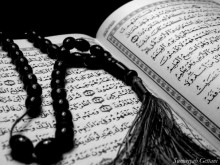
• The Holy Quran has 30 parts
• The Holy Quran has 114 surahs
• Bismillah Al-Rahman Al-Raheem is repeated 114 times in the Quran.
• All except for Surat “Al Tawbah” start with Bismillah al-Rahman al-Raheem.
• Surat “Al Namel, No. 27” has Bismillah Al-Rahman Al-Raheem in its body
• Al-Baqarah is the longest surah in the Quran
• Al-Kawthar is the shortest surah in the Quran
• Milk is the best drink mentioned in the Quran
• Honey is the best food thing mentioned in the Quran
• The best month is Ramadan
• The best night is the Night of Power in Ramadan (Laylat al Qadr)
• The most disliked thing by Allah, although being halal, is Divorce
• Surat Yaseen is the HEART of the Quran
• Surat Al-Ikhlas is considered 1/3 of the Quran
• Quran was revealed over 23 years: 13 in Mecca and 10 in Madina
• Surat Al-Dahr was revealed in respect to Ahlul Bayt (P)
• Surat Al Nissa speaks about laws of marriage
• Whoever reads one letter of the Quran gets 10 Rewards
• Reading 1 verse in Ramadan is equal to reading the entire Quran in other months
• Ramadan is the Spring of the Noble Quran
• The Quran will intercede for people who recited it on Judgment Day
• The Quran will complain of people who didn’t recite it on Judgment Day
Posted in UncategorizedJune 28, 2013No comments
Posted in UncategorizedJune 28, 2013No comments
Posted in Daily IslamJune 25, 2013No comments